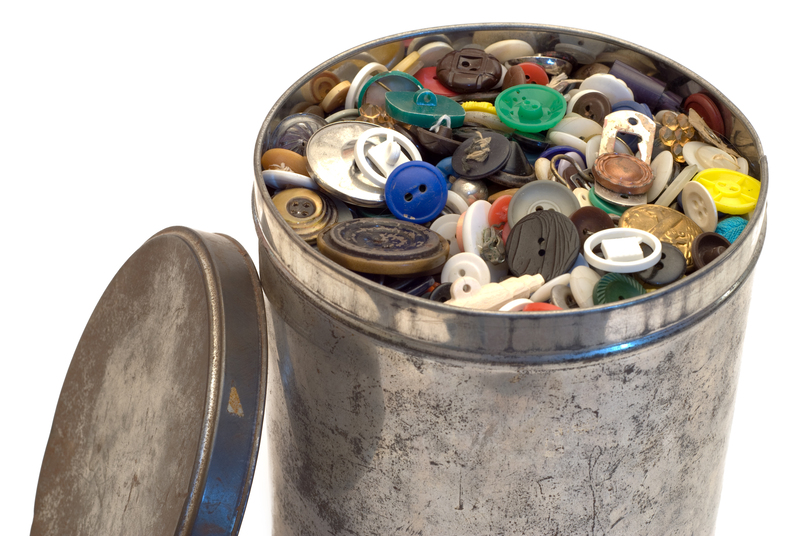Easy Steps to Recycle Your Pots and Pans at Home
Are your old cookware items piling up in your kitchen? Wondering what to do with nonstick pans, rusty pots, or outdated bakeware? This comprehensive guide provides simple and eco-friendly ways to recycle your pots and pans at home. Learn how you can minimize waste, support your community, and help the planet with practical recycling tips for household cookware!
Why Should You Recycle Old Pots and Pans?
Recycling old cookware like saucepans and frying pans is a vital step in reducing landfill waste and environmental pollution. Most pots and pans are made of metal, which takes centuries to break down in landfills. Worse, some nonstick coatings contain chemicals that aren't healthy for the environment.
- Eco-friendly: Scrap metal recycling reduces mining and conserves raw materials.]
- Energy Saving: Recycling metals uses less energy than producing new products from raw ore.
- Community Support: Donating usable cookware helps those in need or supports local initiatives.
In summary, by recycling old pots and pans appropriately, you're making a positive impact on your local and global environment.

Step 1: Assess the Condition of Your Cookware
Before deciding the best method to recycle your pots and pans, determine their current condition. Ask yourself:
- Is the pan still functional?
- Is the nonstick coating flaking off or damaged?
- Does the pot have rust, warping, or cracks?
- Do the handles or lids need fixing?
*Usable cookware* can be reused, donated, or upcycled, while severely damaged pans will need to be recycled as scrap metal or disposed of responsibly.
Step 2: Explore Donation and Reuse Opportunities
If your pots and pans are still in usable condition, consider donating them before recycling. Many people, community centers, and shelters can benefit from cookware in good shape.
Where to Donate Old Pots and Pans
- Local Charities & Thrift Stores: Places like Goodwill, Salvation Army, and Savers often accept gently used cookware.
- Homeless Shelters & Food Banks: Many shelters and communal kitchens use donated cookware daily.
- Community Groups: Check local social media groups or Buy Nothing Project networks for anyone in need.
- Friends & Family: Students, neighbors, or newlyweds may welcome extra kitchenware.
Tip: Before donating, check donation guidelines--some organizations don't accept nonstick pans with scratched coatings or missing parts.
Step 3: Upcycle or Repurpose Your Old Cookware
Not ready to part with those vintage pots or quirky frying pans? Upcycling is a creative and rewarding way to give your old cookware new life. Here are some upcycling ideas for old pots and pans:
- Planters: Turn deep pots or dutch ovens into garden or indoor planters.
- Bird Baths: Use large saucepans as a rustic birdbath in your backyard.
- Wall Art: Hang old pans as decorative pieces or make a unique clock.
- Toy Drum Sets: Pans make excellent sound-makers for kids' playtime.
- Serving Trays: Repurpose shallow pans for picnics or serving trays.
*Get creative!* Upcycling not only reduces landfill waste but adds charm or utility to your home and garden.
Step 4: Prepare Pots and Pans for Recycling
If your cookware is too worn or damaged for reuse or donation, it's time to recycle. *But don't just toss them in your blue bin!* Follow these essential steps for preparing old pans for recycling:
1. Remove Non-Metal Parts
- Take off plastic, rubber, or wooden handles. These materials typically can't be recycled with metals.
- Remove glass lids or plastic knobs; recycle them separately where possible.
2. Clean Thoroughly
- Wash away food residue, oil, or grime. Most recycling centers prefer clean materials.
3. Check the Type of Metal
- Identify the main material: Aluminum, stainless steel, cast iron, or copper pans all have different recycling streams.
- Magnets will stick to steel and cast iron, but not to aluminum or copper.
By prepping your pots and pans, you help ensure the materials can be properly processed at the recycling facility.
Step 5: Find Sustainable Recycling Options
Now that your cookware is prepared, it's time to find where to recycle your old pots and pans. Because most curbside recycling programs do not accept cookware, you'll need to find alternative options.
Where to Recycle Pots and Pans
- Scrap Metal Yards: Many scrap metal dealers accept all-metal pots and pans. Look for local facilities (search "scrap metal recycling near me").
- Municipal Drop-Off Centers: Some city recycling centers offer special bins or drop-off days for bulky metal household items.
- Household Hazardous Waste Events: Contact your city for scheduled recycling events that accept cookware.
- Retailer Take-Back Programs: Some retailers, like Crate & Barrel and Sur La Table, occasionally host trade-in recycling events.
- Manufacturer Take-Back: A few brands (e.g., Calphalon, Le Creuset, GreenPan) offer recycling programs for their products. Check their websites for terms.
*Always verify with your local center about accepted items and any preparation requirements (e.g., minimum quantities or separated materials).*
Step 6: Dispose Responsibly If All Else Fails
If none of the above options are available and your cookware cannot be recycled due to special coatings, hazardous material, or mixed components, you may have to dispose of them as waste.
- Wrap sharp or broken pieces in newspaper or cardboard for safety.
- Check local guidelines for proper disposal procedures.
- Document the items for safe landfill management if required.
Remember, this should be your last resort! Always prioritize recycling or donation whenever possible.
Special Handling for Nonstick, Teflon, and Ceramic Cookware
Recycling nonstick pans (like those coated with Teflon or ceramic) requires extra attention, as the coatings are typically not recyclable. Most scrap yards will not accept pans with intact nonstick coatings due to chemical concerns.
- Scrap Metal Facilities: Some will recycle nonstick pans if the coating is removed (which is usually difficult at home).
- Manufacturer Mail-Back: Certain brands have take-back programs for their products after use.
- Proper Disposal: If no recycling option exists, dispose of the item according to household waste rules.
*For safety and environmental reasons, never burn or use harsh chemicals to remove nonstick coatings yourself!*
What About Glass and Bakeware?
Glass lids, Pyrex, and stoneware cannot be recycled with standard glass bottles/jars due to different melting points. Check with your local recycling program or hazardous waste event for special collection days or drop-off points for these materials.

FAQs: Easy Ways to Recycle Pots and Pans
-
Can I put old pots and pans in my curbside recycling bin?
No. Most home recycling bins do not accept cookware due to size, weight, and mixed materials. Always use municipal drop-off centers or scrap yards. -
Do thrift stores accept all types of cookware?
Typically, only items in usable condition with intact coatings, parts, and handles can be donated. Damaged or heavily worn pans should be recycled or disposed of. -
Is it safe to recycle cookware with plastic handles?
Remove all plastic, wooden, or rubber components first. Recycle each part where appropriate for the material. -
Can I recycle nonstick pans?
It's more difficult, since the coatings are not recyclable. Check for manufacturer take-back programs or ask your local recycling center. -
What about cast iron skillets?
Cast iron cookware is highly recyclable and sometimes even repairable (re-season or reseal for donation). Scrap yards accept all-metal cast iron.
Conclusion: Start Recycling Cookware Today!
As you can see, it's easy to recycle your pots and pans at home with just a little planning. Whether you donate, upcycle, or recycle your old cookware, you're taking positive steps for the environment and your community.
- Assess the condition--Reuse or donate if possible.
- Prepare the items--Disassemble and clean.
- Find a recycling or drop-off center--Choose the best option in your local area.
- Dispose responsibly--Landfill only as a last resort.
Make your kitchen more sustainable by following these easy pot and pan recycling steps--your home and planet will thank you!
Ready to start? Dive into your cupboards today and discover new possibilities for recycling, upcycling, and helping your community with old pots and pans!
Have more tips or questions about recycling cookware at home? Share your experiences or suggestions below to inspire others!